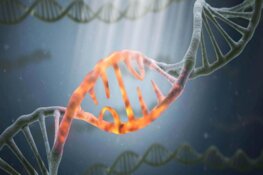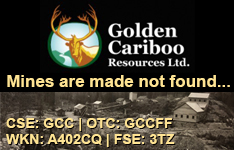Kyverna Therapeutics Inc. (KYTX:NASDAQ), a clinical-stage biopharmaceutical company developing cell therapies for autoimmune diseases, hosted a virtual Key Opinion Leader (KOL) event to present details of its neuroimmunology program and the upcoming registrational Phase 3 trial in myasthenia gravis (MG). The event also highlighted longer-term outcomes from patients with MG and stiff person syndrome (SPS) treated under compassionate use and reviewed initial elements of the company's commercial strategy.
During the event, Kyverna introduced the design of the Phase 3 portion of its KYSA-6 trial, which is evaluating KYV-101, a fully human autologous CD19-directed chimeric antigen receptor (CAR) T-cell therapy. The Phase 3 trial is expected to begin enrolling patients by the end of 2025, following FDA alignment and the conclusion of Phase 2 enrollment.
The KYSA-6 Phase 3 trial will randomize approximately 60 adult patients with generalized MG 1:1 to receive either a single infusion of KYV-101 or continue standard-of-care (SOC) therapy. The trial's co-primary endpoints are changes in Myasthenia Gravis–Activities of Daily Living (MG-ADL) and Quantitative Myasthenia Gravis (QMG) scores at 24 weeks. Secondary endpoints include the Myasthenia Gravis Composite (MGC) score and other efficacy markers such as symptom reduction and immunosuppressant withdrawal.
Patients initially assigned to the SOC arm will be eligible to cross over and receive KYV-101 later in the study. According to the company, the trial is designed to assess KYV-101 as a standalone therapy without background immunosuppression, which is distinct from many existing MG trials.
In addition to clinical trial design, the company shared encouraging long-term results from compassionate use of patients treated with KYV-101. These cases, treated in Germany under the Individueller Heilversuch (IH) program, demonstrated sustained responses in both MG and SPS, including elimination of prior-line immunosuppressants, improved mobility, and reductions in autoantibody titers.
Warner Biddle, Chief Executive Officer of Kyverna, stated in the news release, "We are proud to highlight our potential first-in-class CAR T-cell therapy that can address the significant unmet needs of patients with autoimmune diseases, beginning with SPS and MG." He also noted the company's aim to "fundamentally change the treatment paradigm in MG by providing durable, drug-free, disease-free remission with a single dose."
The company reported US$211.7 million in cash, cash equivalents, and marketable securities as of June 30, 2025, and expects its cash runway to extend into 2027.
Cell and Gene Therapy Advances Amid Growing Demand and Manufacturing Challenges
According to a 2025 report by Precedence Research, the global cell and gene therapy market was projected to reach US$8.94 billion in 2025, expanding from US$7.79 billion in 2024. The market was expected to grow at a compound annual growth rate (CAGR) of 17.98% through 2034, with North America accounting for over 50% of global revenue. In the United States alone, the cell and gene therapy market was valued at US$3.59 billion in 2024 and was projected to grow to US$16.93 billion by 2034.
Precedence Research noted that cell and gene therapies have reshaped care standards by offering "one-time and potentially permanent" solutions to previously untreatable illnesses. The approval of over 20 therapies in the U.S. over the prior two decades, with individual prices ranging from US$37,500 to over US$2 million per treatment, underscored the high cost and logistical complexity of such therapies. As a result, the report emphasized the need for "integrated services across the whole supply chain" to streamline biomanufacturing and patient access.
Mitchell Kapoor at H.C. Wainwright & Co. reiterated a "Buy" rating on Kyverna Therapeutics, Inc. and raised its price target to US$10 per share from a prior target of US$5, citing extended remission durations among compassionate-use patients with myasthenia gravis (MG) treated with KYV-101.
The same report identified cell therapy as the dominant therapy type in 2024, driven by growing adoption in chronic conditions and the success of CAR T-cell therapies in particular. CAR T, a form of immune cell therapy, had captured rising interest for its ability to induce deep and durable responses. In 2024, CAR T therapies accounted for approximately US$193 million in global revenue and were forecast to see continued growth.
OpenPR provided further insight into the 2025 landscape, describing the cell and gene therapy manufacturing market as a specialized and rapidly growing segment within biopharma. The market was estimated at US$6.3 billion in 2022 and was anticipated to reach US$22.73 billion by 2029. The report highlighted the complexity of the sector, stating that manufacturing often required "bespoke protocols for individual patients or small batches." Growth in the space was linked to the increasing number of clinical trials, adoption of automated production platforms, and the expansion of specialized contract development and manufacturing organizations (CDMOs).
OpenPR also reported that companies were actively addressing persistent barriers such as raw material shortages, high production costs, and evolving regulatory requirements. Trends in allogeneic, or off-the-shelf, therapy platforms were gaining traction, alongside investments in advanced automation and artificial intelligence to increase process efficiency.
In an August 28 article for Pharmaceutical Technology, Robert Barrie examined recent volatility in the cell and gene therapy space, describing it as a "correction phase" rather than a collapse. The article cited a growing number of FDA-approved therapies, with 45 approved in total and seven approved in 2024 alone. However, the piece acknowledged commercial setbacks and manufacturing delays that had challenged sector momentum.
Analysts Raise Confidence in KYV-101's Clinical Durability and Market Potential
On August 29, Mitchell Kapoor at H.C. Wainwright & Co. reiterated a "Buy" rating on Kyverna Therapeutics, Inc. and raised its price target to US$10 per share from a prior target of US$5, citing extended remission durations among compassionate-use patients with myasthenia gravis (MG) treated with KYV-101. According to the firm, "all three compassionate-use MG patients treated with KYV-101 remain in drug-free, disease-free remission, with follow-up now at 24 months (Patient 1), 22 months (Patient 2), and 15 months (Patient 3)." This marked the first time all three patients had surpassed the one-year threshold, a benchmark analysts described as "especially meaningful for patients and caregivers."
Kapoor stated that these durability data "reinforce the credibility of KYV-101's clinical profile and the case for CAR-T usage in autoimmune disease." The analysts also noted that KYV-101's sustained response differentiated it from existing therapies such as FcRn inhibitors and complement pathway inhibitors, which typically require continuous treatment and do not consistently eliminate background immunosuppressive use.
The firm's report emphasized KYV-101's potential to carve out a "durability moat" in the MG space, referencing clinical benchmarks where KYV-101 patients achieved MG-ADL scores of zero, ceased background therapies, and sustained remission across durations not commonly observed in currently approved treatments. The analysts wrote that "on depth of response, freedom from chronic dosing, and durability, KYV-101's profile looks differentiated."
In its valuation model, H.C. Wainwright applied a discounted cash flow approach using an 11% discount rate and a 2% terminal growth rate, assigning Kyverna a total market value of approximately US$440 million. The model incorporated a 25% probability of approval for KYV-101 in MG and a 10% probability of approval in lupus nephritis. According to the report, "we ascribe a 10% probability of approval to KYV-101 in LN and 20% probability of approval to KYV-101 in MG" based on current data availability and ongoing trial timelines.
The analysts concluded that the FDA-aligned design of the KYSA-6 Phase 2/3 trial represented a streamlined path toward a Biologics License Application. The 60-patient study was described as "greater than 90% powered to show superiority at week 24" with endpoints designed to evaluate efficacy in the absence of background immunosuppressants. They acknowledged that longer-term durability would be assessed during an 18-month follow-up window.
Advancing the Neuroimmunology Platform
Kyverna's neuroimmunology franchise is built around KYV-101, which is being evaluated in both MG and SPS. The company has completed enrollment in the registrational Phase 2 KYSA-8 trial for SPS and expects to report topline data in the first half of 2026. The SPS trial uses validated mobility metrics such as the Timed 25-Foot Walk to assess outcomes.
In MG, the Phase 2 portion of KYSA-6 was fully enrolled ahead of the Phase 3 expansion, with interim data expected in the fourth quarter of 2025. According to the company's investor presentation, Kyverna views MG as a high-value indication with an estimated 30,000 to 40,000 U.S. patients already receiving second-line immunosuppressants and a total U.S. market of 80,000 to 100,000 patients.
KYV-101 has received Regenerative Medicine Advanced Therapy (RMAT), Orphan Drug Designation (ODD), and Fast Track Designation from the U.S. Food and Drug Administration for both SPS and MG.
 Streetwise Ownership Overview*
Streetwise Ownership Overview*
Kyverna Therapeutics Inc. (KYTX:NASDAQ)
In parallel with advancing its KYSA clinical programs, Kyverna continues to develop KYV-102, a next-generation product manufactured from whole blood without apheresis. The company anticipates submitting an Investigational New Drug (IND) application for KYV-102 in the fourth quarter of 2025.
The integrated strategy is designed to leverage shared commercial infrastructure, clinical networks, and treatment centers across neuroimmunology indications. Kyverna's pipeline also includes early-stage programs in lupus nephritis, multiple sclerosis, and rheumatoid arthritis.
Ownership and Share Structure
According to Refinitiv, 2.49% of Kyverna Therapeutics is held by management and insiders.
Strategic Entities hold 9.54% and Institutions hold 62.37%.
Those include Westlake Village BioPartners with 10.46%, VV Manager LLC at 10.46%, and Gilead Sciences at 9.54%.
The rest is retail.
Kyverna has 38.04 million free float shares, a market cap of US$155.25 million, and a 52 week range of US$1.78 to US$8.28
| Want to be the first to know about interesting Biotechnology / Pharmaceuticals investment ideas? Sign up to receive the FREE Streetwise Reports' newsletter. | Subscribe |
Important Disclosures:
1) James Guttman wrote this article for Streetwise Reports LLC and provides services to Streetwise Reports as an employee.
2) This article does not constitute investment advice and is not a solicitation for any investment. Streetwise Reports does not render general or specific investment advice and the information on Streetwise Reports should not be considered a recommendation to buy or sell any security. Each reader is encouraged to consult with his or her personal financial adviser and perform their own comprehensive investment research. By opening this page, each reader accepts and agrees to Streetwise Reports' terms of use and full legal disclaimer. Streetwise Reports does not endorse or recommend the business, products, services or securities of any company.
For additional disclosures, please click here.










































